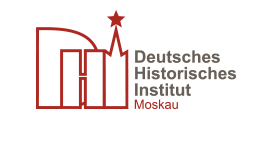
Russia‘s North Pacific Between Imperialism and Globalization. Institutions and Spaces
Vom 29. bis 30. März 2018 fand am Deutschen Historischen Institut (DHI) Moskau die Konferenz „Russia‘s North Pacific Between Imperialism and Globalization. Institutions and Spaces“ statt. Organisiert wurde die Veranstaltung vom DHI sowie der Ludwigs-Maximilian-Universität München (LMU). Der Workshop widmete sich einer in der Forschung stark unterrepräsentierten Region: die nördlichen Pazifik-Gebiete Russlands. Die Veranstaltung war die erste gemeinsame Veranstaltung des gemeinsamen Forschungsprojektes „Russia‘s North Pacific“ zwischen DHI und LMU. Die Beiträge verteilten sich auf vier Panels: Environment and Resources; Migration and Transfer; Representations and Norms; International and Regional Actors Between Cooperation and Conflict.
For many researchers Russia's North Pacific is a terra incognita. So far, most scholars of Eastern Europe and Russia have focused on European and, to some lesser extent, Caucasian or Central Asian areas of the Russian Empire, the Soviet Union or the Russian Federation. The aim of this workshop, organized by the German Historical Institute Moscow and the Ludwig Maximilians University of Munich as the first result of a new joint research project on “Russia´s North Pacific”, was to broaden and develop these existing perspectives on Russia, by highlighting transnational political, economic, social and ecologic processes, discourses and interactions between Russian actors and subjects of other countries neighbouring the North Pacific.
Den gesamten Tagungsbericht von Jochen Wiesner für H-Soz-Kult können Sie hier weiter lesen.
Conference Overview
29 MARCH 2018
PANEL I ENVIRONMENT AND RESOURCES
Chair: Nikolaus Katzer (German Historical Institute Moscow)
Robert Kindler (Humboldt University, Berlin): Sushi in Petropavlovsk. Russia, Japan and the Struggle over Maritime Resources in the Northern Pacific, 1900-1941
Bathsheba Demuth (Brown University, Providence): Soviet Whaling in the Russian Far East: Making Socialist Utopia at Sea, 1930s-1970s
Benjamin Beuerle (German Historical Institute Moscow): Climate Change and Emissions in the Russian Far East: Perceptions and Approaches in Late Soviet and Post-Soviet Times, 1970s-2010s
Commentator: Julia Herzberg (Ludwig Maximilians University, Munich)
PANEL II MIGRATION AND TRANSFER
Chair: Helena Holzberger (GS for East and Southeast European Studies, Munich)
Sergei Tkachev (Far Eastern Federal University, Vladivostok): Chinese Labour Migrants in the Russian Empire (End of the 19th - Early 20th Cent.): the Point of View of Authorities and Business
David Wolff (Hokkaido University, Sapporo): Sugihara’s Transit Visas and the Rise of Vladivostok Tourism Infrastructure, 1940-1941
Frank Grüner (Bielefeld University): Contested Spaces and Places of Transnational Entanglement: Bazaars and Ethnic Markets in Manchuria and the Russian Far East from 1900 until Today
Tobias Holzlehner (Martin Luther University, Halle-Wittenberg): A Coast Gone Lonesome: Forced Migration, Resistance and Littoral Reserves in Chukotka
Commentator: Sebastian Lentz (Leibniz Institute for Regional Geography, Leipzig)
30 MARCH 2018
PANEL III REPRESENTATIONS AND NORMS
Chair: Birte Kohtz (German Historical Institute Moscow)
Paul Richardson (University of Birmingham): Geopolitical Cultures, Pragmatic Patriotism, and Russia´s Disputed Islands
Sören Urbansky (German Historical Institute Washington D.C.): ’The Chinese Plague’. Hygiene and Sinophobic Sentiments in Vladivostok, San Francisco and Singapore
Joonseo Song (Hankuk University, Seoul): Memory of War in the Russian Far East and Siberia
Commentator: Sandra Dahlke (German Historical Institute Moscow)
PANEL IV INTERNATIONAL AND REGIONAL ACTORS BETWEEN COOPERATION AND CONFLICT
Chair: Andreas Hilger (German Historical Institute Moscow)
Yuexin Rachel Lin (University of Exeter): Poison Money: The Chinese Rublezone in War and Revolution
Natalia Ryzhova (Far Eastern Branch of the Russian Academy of Sciences, Vladivostok): Asia as a Source for the Development of the Russian Far East?
Tamara Troyakova (Far Eastern Federal University, Vladivostok) & Jeremy Tasch (Towson University, MD): More than just a ‘Bridge’? Russia’s Asian Pivot through Vladivostok
Commentator: Andreas Renner (Ludwig Maximilians University, Munich)
FINAL DISCUSSION & OUTLOOK

